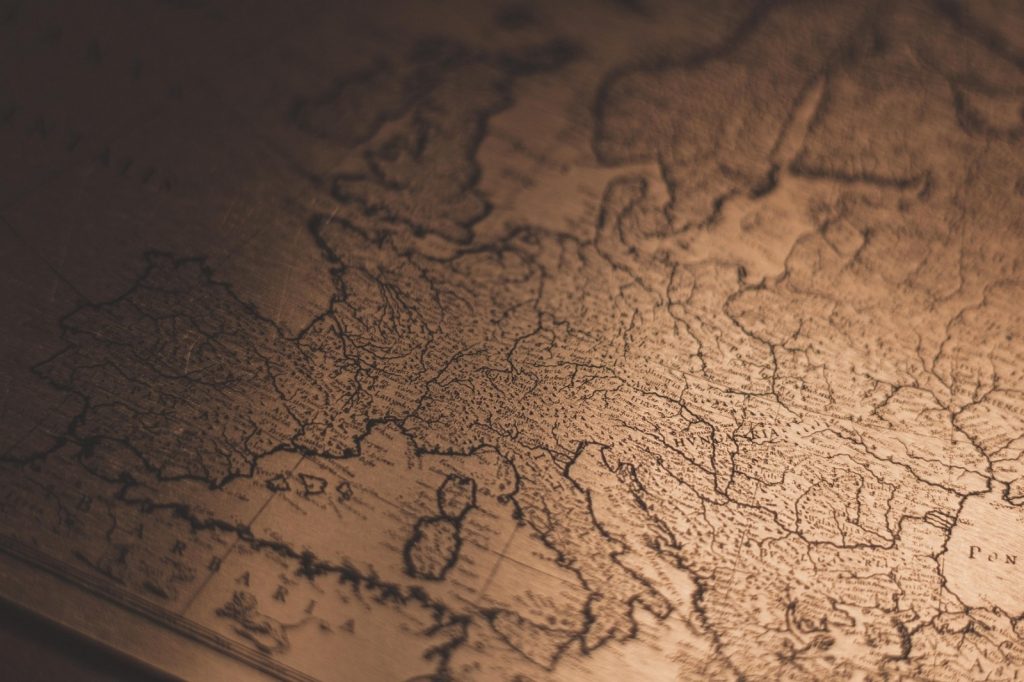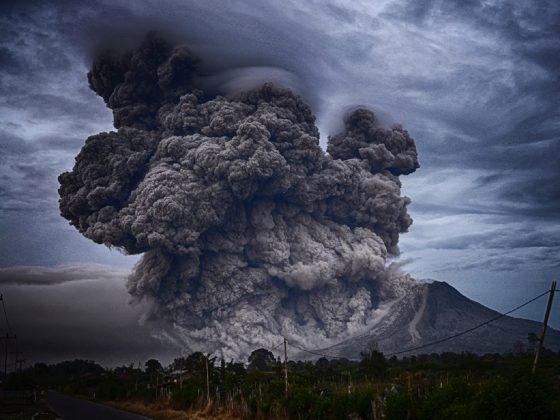Today’s Europe resembles the period of upheaval in ancient Babylon when division among people prevailed.
[/et_pb_text][et_pb_text quote_border_weight=”0px” _builder_version=”3.29.3″ text_text_color=”#333333″ text_font_size=”18px” link_text_color=”#00808e” quote_font=”|300|on||||||” quote_text_align=”center” quote_text_color=”#007084″ quote_font_size=”28px” header_2_font_size=”18px” header_3_text_color=”#3f3f3f” header_3_font_size=”27px” header_3_line_height=”1.2em” max_width=”76%” max_width_last_edited=”on|desktop” module_alignment=”center” custom_margin=”|||” hover_enabled=”0″ _i=”1″ _address=”0.0.0.1″]Analyzing this period in history will help us understand why the Old Continent today represents the essence of humanity, and how repairing its social fabric can set an important precedent for solving similar challenges in the rest of the world.
Some 3,800 years ago, between the banks of the Euphrates and Tigris rivers, in a desert region near present-day Iraq, humanity lived in great clans in Babylon and cared for one another. They lived together as kin until this relationship shattered. The egoistic desire had increased within the Babylonians: each one started demanding more and more self-benefit at the expense of others, which lead to quarrels and crises. The overblown ego compelled them to build a tower to the heavens, a symbolic manifestation of the prideful ambition each felt to conquer the universe.
Initially, one language was spoken. Then, their ideological separation evolved into the development of many languages and they stopped communicating. Their mutual life was broken to pieces, the camaraderie and sense of belonging to a single people vanished and they ended up dispersing to all directions.
“The World Kabbalah Convention scheduled to take place in mid-November in Bulgaria will gather hundreds of Europeans from all over the continent, alongside Israelis and representatives from dozens of other countries.”
One of Babylon’s spiritual leaders, Abraham, wondered about the nature of the deepening social rift. He discovered that the rift stemmed from a natural and inevitable growth of humanity’s egoism: the pleasure derived from exploiting others for self-benefit, the source of disrupted human relations. Abraham wandered among the various tribes and clans, calling out to anyone who felt the need to build a new society.

He gathered representatives from all the 70 nations of humanity’s past civilization and formed a new people called “Israel,” from the Hebrew “Yashar-El,” straight to the Creator. The people of Israel were very diverse. Everyone spoke different languages and had wide ranging opinions and perceptions, but they sat together in Abraham’s tent, learning how to rise above their differences. Back then, the common denominator among the people of Israel was the idea of unity above differences.
The method of connection that Abraham taught was that there is one force that holds us together: the force of love. According to his method, our disagreements remain, but we elevate above them through the principle, “love will cover all transgressions.” He taught how to build healthy and positive relationships above the growing egoism.
Over many years in Babylon, we lived in a state of apparent calm, but then the ego, which simmered quietly beneath the surface, began to boil over. Moreover, its spillage continues into our times. Our egoism keeps growing, making changes on all levels of existence. It sharpens personal interests and causes global conflicts, propels massive migratory movements from one continent to another, provokes starvation and poverty, collapses economies, sabotages relationships, and awakens terror and protests.
Today, the European continent is an encasement of all the aforementioned changes. The kingdom of Babylon has evolved in today’s Europe. Despite its rich history, education, culture, and advanced science and medicine, Europeans have remained enclosed within themselves as the Babylonians of the old days—an insular and alienated people. In one word: egoists.
There is no continent or country that can claim to be perfect, but we focus on Europe because it represents the quintessence of humanity: contemporary civilization divided into the 38 countries of Europe, each nation with its own language, its particular style, its own selfish character, while they struggle to maintain a thin veneer of unity.
Today’s Europe is not the Europe of countries that conquer, rule and dictate a new world order. More and more Europeans are disturbed by questions about Europe’s uncertain future. The inability to properly absorb tens of thousands of immigrants from foreign cultures and the extremes that permeate the political leadership do not bode well for the years ahead. Everything is crumbling in their hands, and to make it worse, no one offers any real solution. There is no plan on the horizon to ensure a bright future for the new generation.
Over the cumulative despair of humanity’s history, we have yet to realize that we are together in the same boat. We either sail it as one, or we sink together. In order to stay afloat and succeed, we have Abraham’s method of connection, the wisdom of Kabbalah which has grown and evolved after being passed quietly from generation to generation, and hidden from the masses only to be revealed when humanity would be ripe to grasp it. That time has arrived, the time when egoism has peaked and a method to balance it needs to be accessible to everyone.
The World Kabbalah Convention scheduled to take place in mid-November in Bulgaria will gather hundreds of Europeans from all over the continent, alongside Israelis and representatives from dozens of other countries. There will be speakers of different languages and dialects, men and women from all walks of life, different ages and diverse worldviews. Together, we are about to make a small but important step toward unity above differences, toward connection among Europeans, as well as between Europe, Israel and other parts of the world: a reconnection of ancient civilization after thousands of years of separation.
Our aim is to build a new kind of tower between us through the power of connection, one based on love that radiates warmth and support to the world. This warm connection will revive the bonds that have unraveled over the years. Let us return to being one united Babylon, but this time without any confusion: only through a common desire to sing in one harmonious voice.
We will perceive the benefit and positive sensation of the connection we forge long after the convention ends. After every participant and group returns home, seemingly physically disconnected once again, we will still have that sense of belonging to one family. The warmth that will radiate from us, not only will provide us with personal security and a prosperous perspective of life, but will also provide a positive example of a society that prioritizes unity above differences as a solution to all problems and a way to a better world.
We will feel like pioneers, the first in this generation who are able to unite and spread the importance of connection by all possible means. The power of our connection will touch the hearts of every European, returning the hope that has been lost, inviting all to become part of us: to join the warm family that embraces everyone.
[/et_pb_text][/et_pb_column][/et_pb_row][/et_pb_section]










